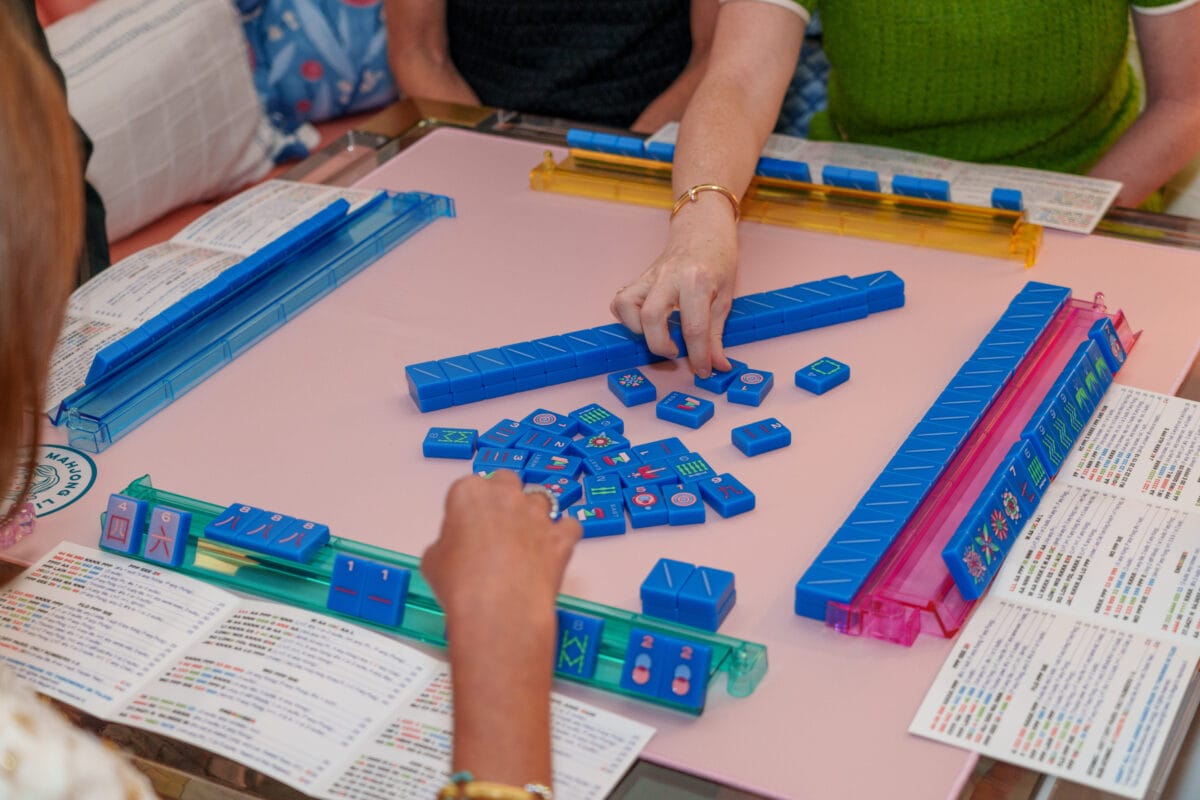What do three lawyers, one private equity investor, a SCAD professor, a commercial real estate broker, and a writer have in common? Enjoying the game of Mahjong. This is my Mahjong group and this is the tale of us.
Mahjong enthusiasts are popping up everywhere in Buckhead. Have you noticed? Even though many of us have experienced a cultural whiff of Mahjong, either from the novel The Joy Luck Club or the movie Crazy Rich Asians, some are still wondering What is Mahjong?
The rudimentary answer: Think gin rummy using artful tiles instead of a deck of cards. That is an understatement, but you get the idea. The goal is to be the first player to match a sequence of tiles, using all thirteen of your tiles.
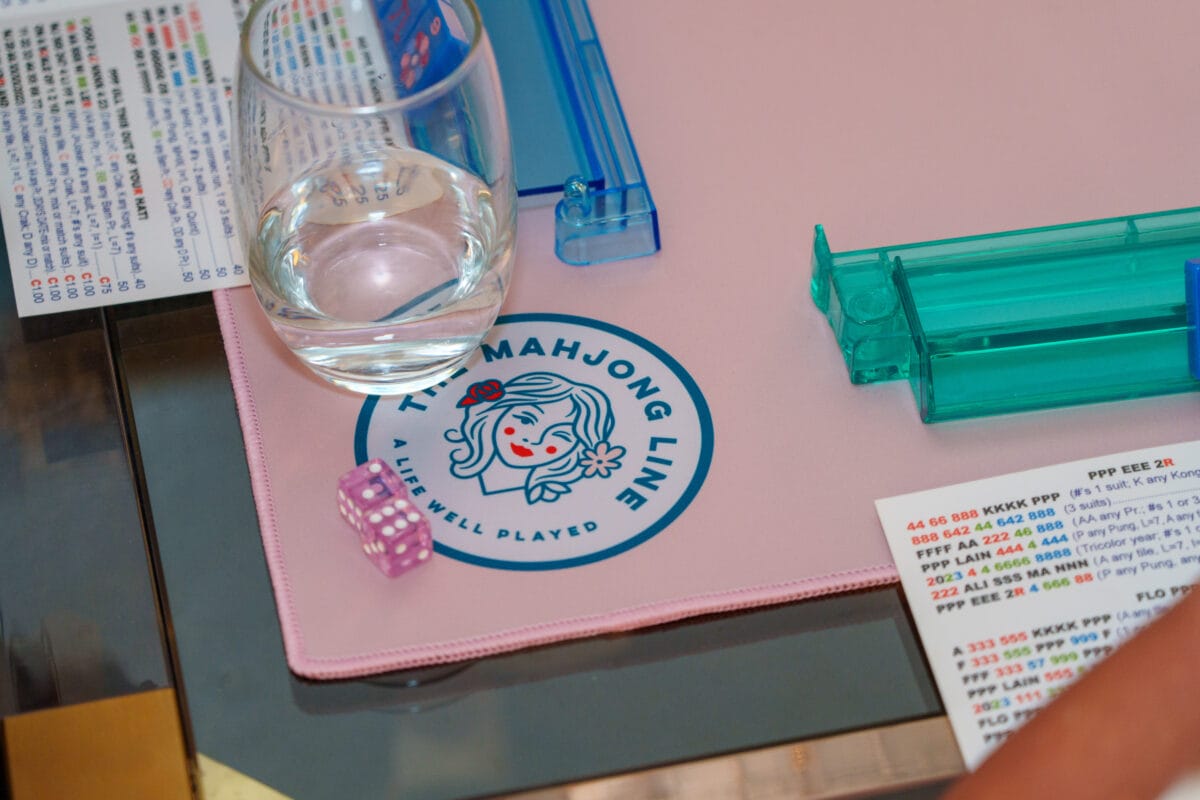

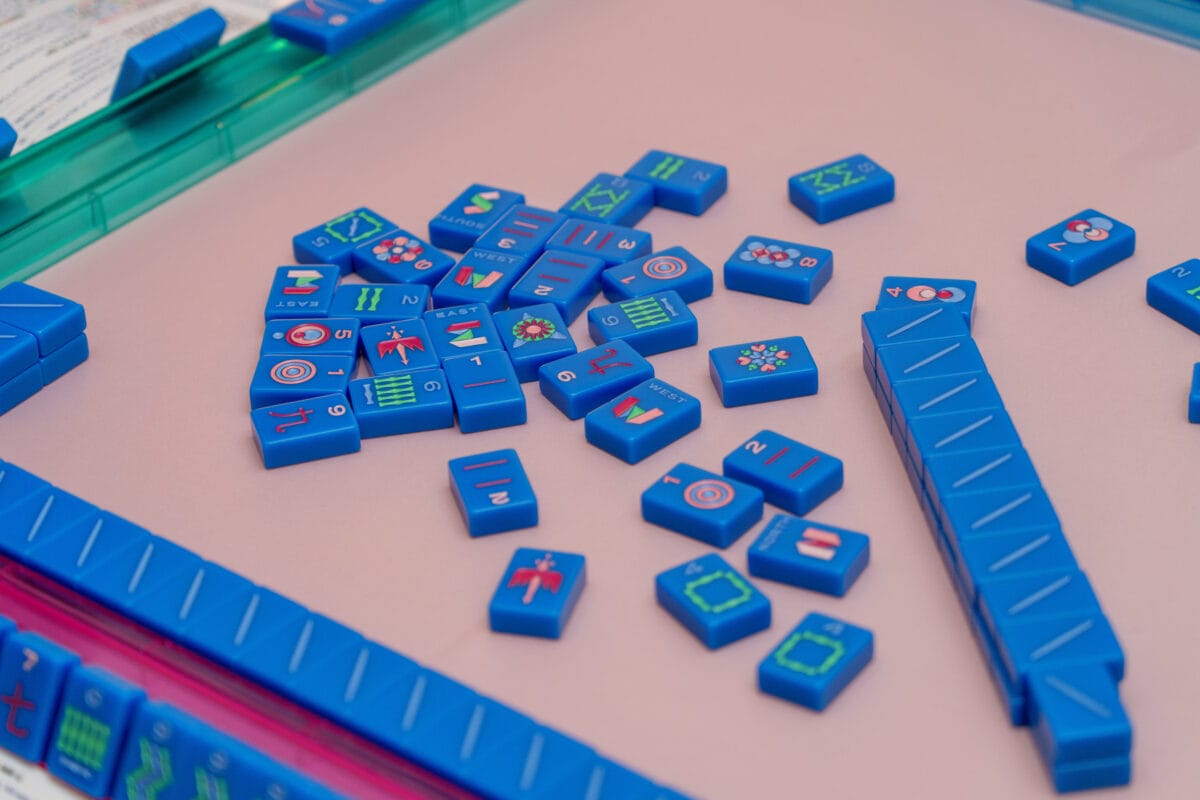
Maybe this tile craze is taking off because it is known to promote patience and politeness. Meh. That is not why our group plays. We live in an exponentially-growing metropolis, so patience is probably not all that obtainable anymore. According to Market Business News, studies show that Mahjong helps maintain good brain health and improve memory skills. A fat chunk of dark chocolate does that too. Just saying. Actress Julia Roberts plays because she finds it relaxing. I love that for her. Really, I do. Yes, those are meritorious rationales for playing. And so is the important skill of making speedy decisions and gathering information. Yet, none of those explains our Mahjong motivations.
We play for one reason, simple enjoyment. No committees are required. No agendas are passed out. We don’t have to elect co-chairs. No casserole sign-up is needed. No nothing. Not even prizes.
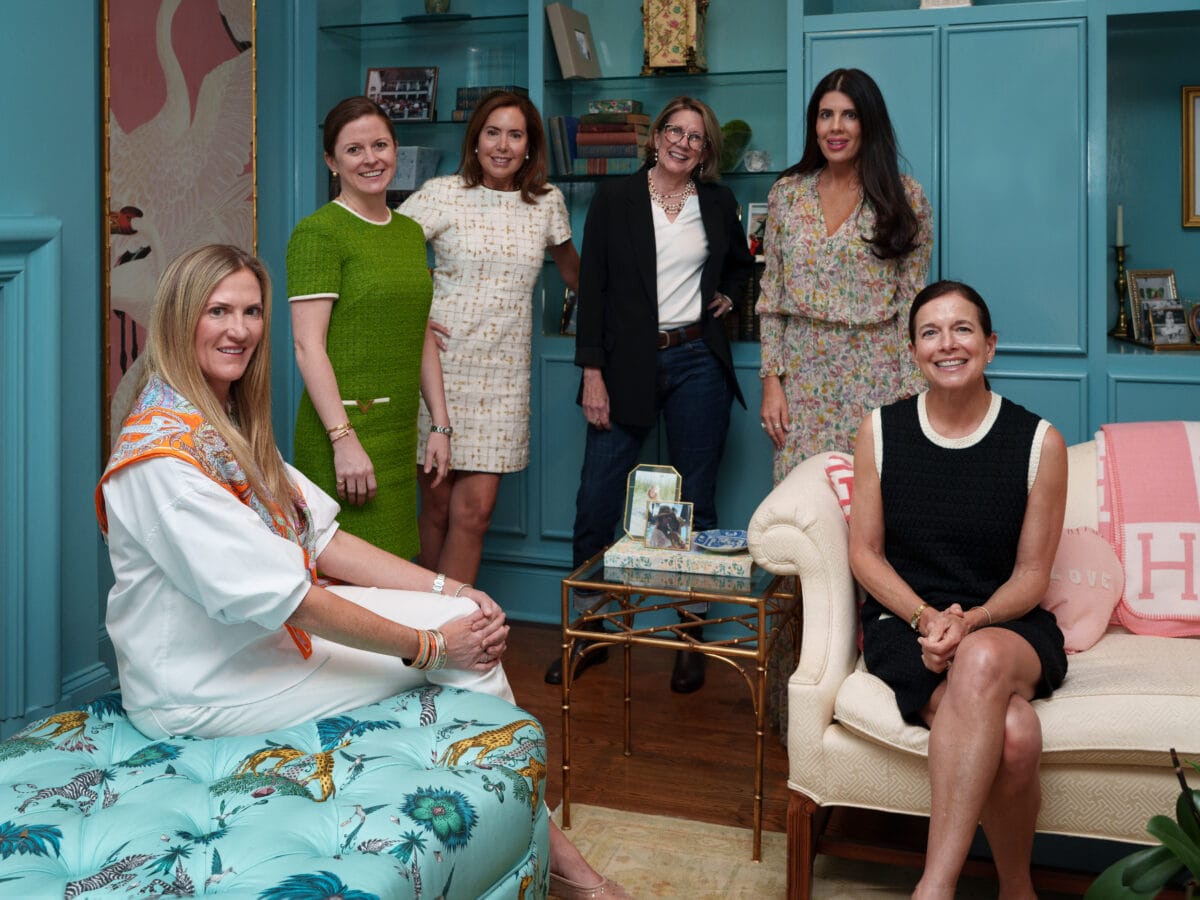
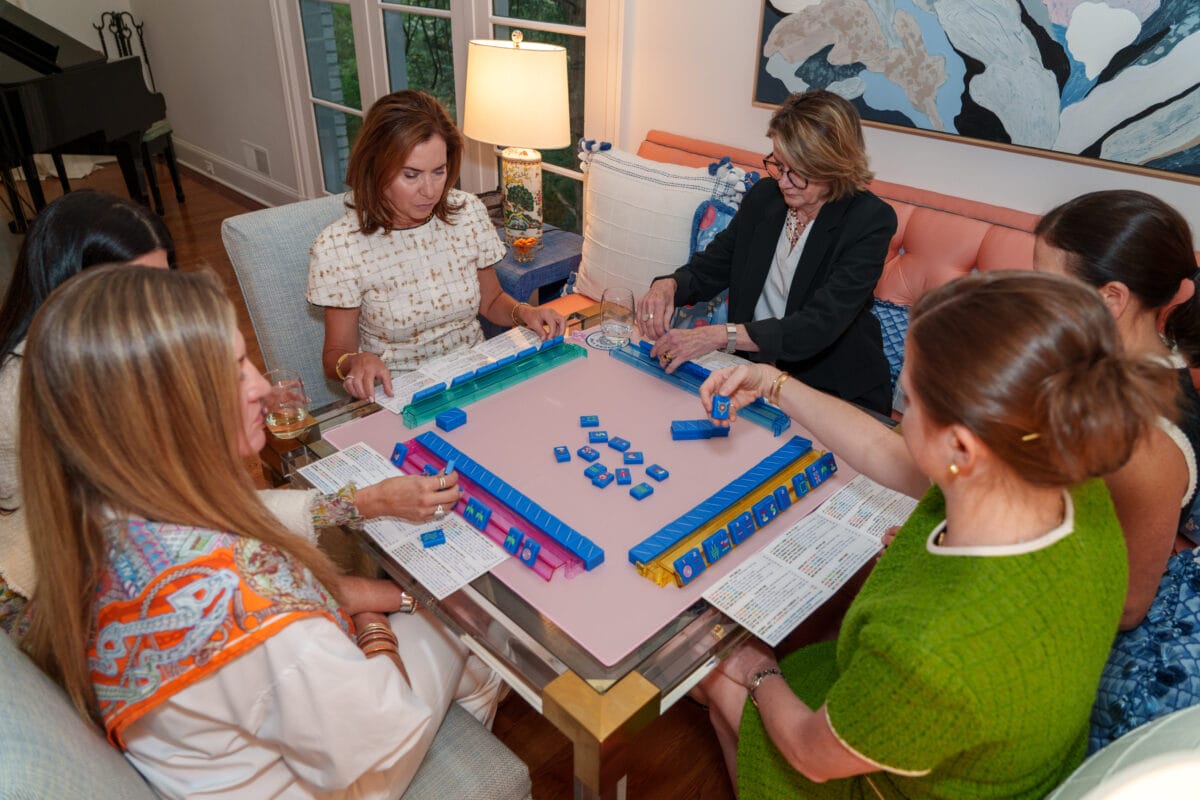
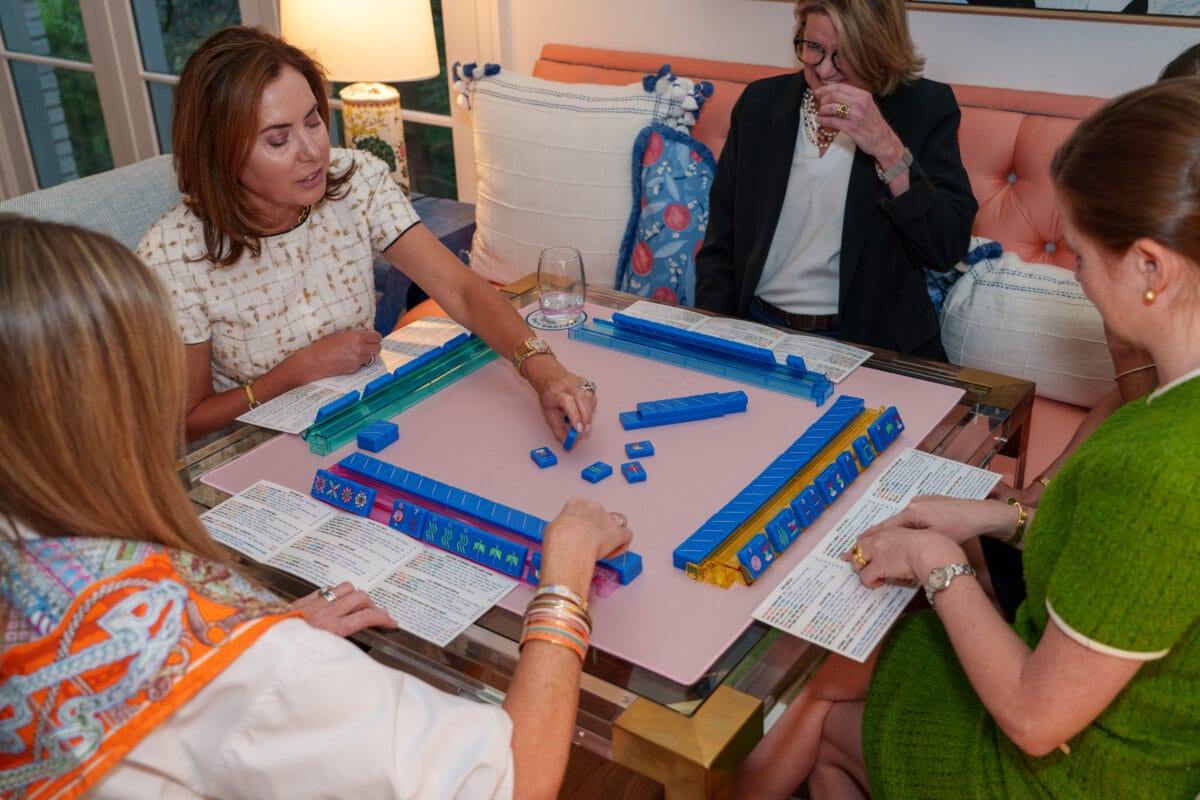
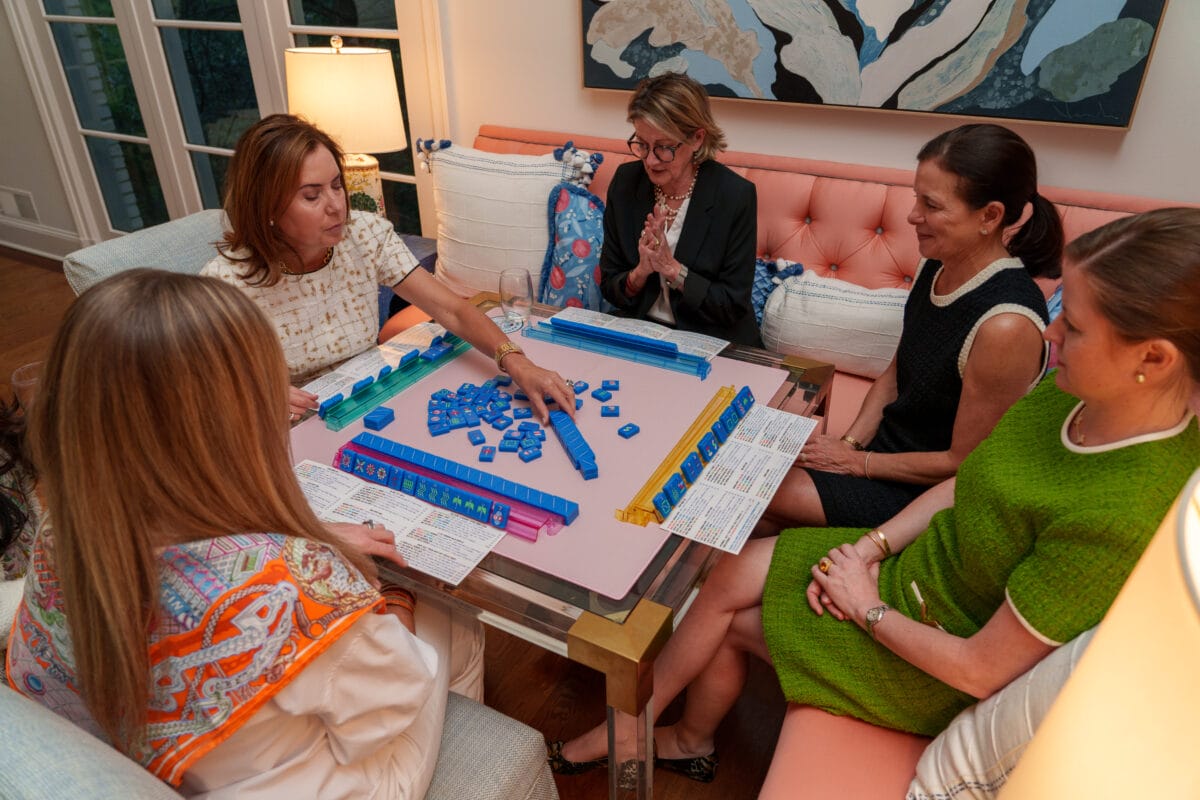
It’s weird. When we play, we also never eat and rarely drink anything except LaCroix. I know, all of this seems incredibly counter intuitive for a gathering group of women who like each other. Sometimes, Melissa Laue brings us good chocolate. This is the one group I am a part of that doesn’t feel compelled to drone on incessantly about scuttlebutt, Ozempic, or botched-up Botox. That is not who we are.
What we are is beautiful laughter and joy for a mere two hours.
History is unsure if the ancient Chinese game started in the 1200s, 1300s, 1600s, or the 1800s. Another thing that cannot universally be agreed upon is how to spell the game. Mah Jongg? Mah jong? Mahjong? With hyphens or without? No one knows. Any way works.
According to the Seattle Times, the American Mahjong introduction happened in the mid-1920s by Joseph P. Babcock, a Standard Oil employee. According to legend, after Babcock first encountered the game on a ship while traveling the Yangtze River, he began exporting sets of the game to the United States. At the time, Babcock realized that there was a fascination with the ‘unknown China’ and that Americans were hungry for anything from the exotic East. Babcock’s Mahjong sets became all the rage.
Today, the game is having a resurgence across America, not just Buckhead. Possibly, the pandemic-induced home-bound isolation that lasted for months on end gave so many of us the same take away: We hated the grueling separation from one another. We need each other. So Mahjong seems a fitting solution; four people at one table, elbow to elbow. Eyes glued to the same action.
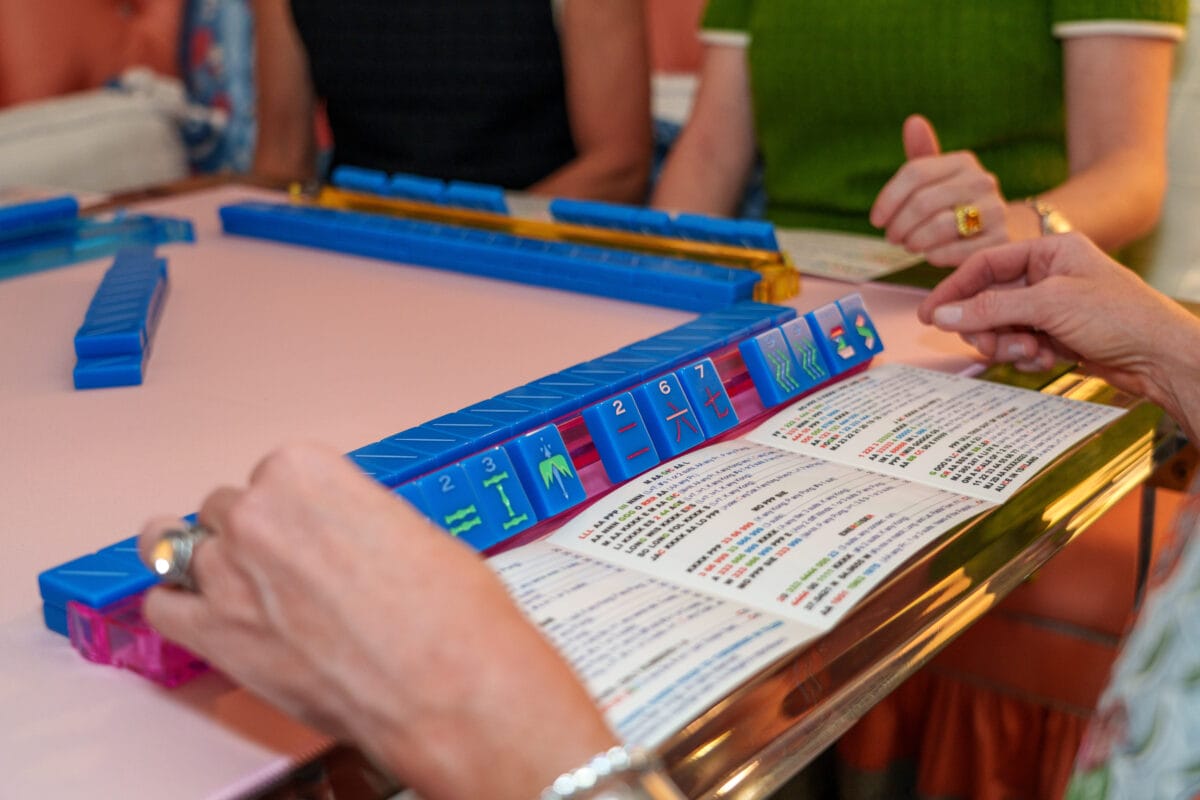
For those interested and needing an entrée into the game, look to the Buckhead Mahjong Club on Facebook. That is a terrific spot to start. Co-founders of the club, Liz Liu and Luciana Holbert, instruct players of all levels and host wine and Mahj games across the southeast.
Our group typically plays on a Tuesday or Wednesday night, rarely every week though. I miss it when it’s not on my calendar. Some weeks, we have two tables of four players. Other weeks, we can only fill one table. The game stays with us long after we go home, feed the dog, spray the mucky kitchen sink clean, and roll into bed. We have never once been together and not exploded into memorable laughter. Inevitably, the day after playing, someone starts a text chain because they are still giggling. Which gets us remembering the generous night together.
For us, Mahjong is gobs better than a sisterhood; it’s a cousinhood. A cousinhood in the sense that no matter who shows up to play, we know it will be a lovely, lovely time. And no one can ask more of that from a Tuesday or Wednesday night.

